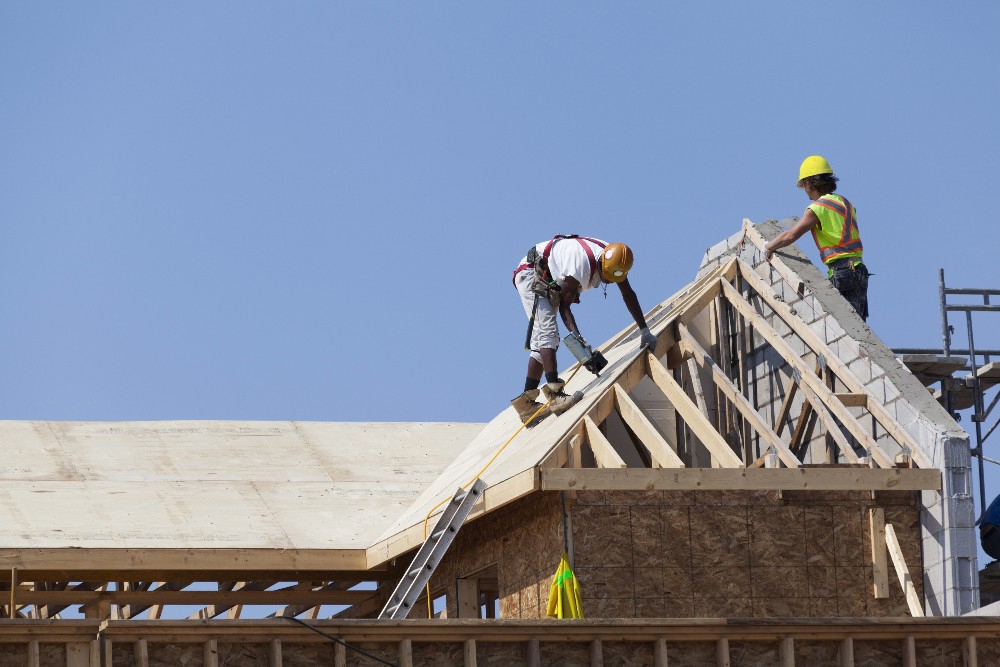If you’re considering having roofing work done—whether big, small, or otherwise—there’s a good chance that a permit will be required.
Roofing permits are typically issued by the city in which the building is located, and more often than not, significant roofing projects must have a pre-issued permit that can be presented on-site as the work is completed.
Roofing permits are required as a protective measure for the home or business owner. They help to ensure that the work being done is in accordance with local building codes. Without a required permit, any roofing work you might have done could make you highly vulnerable to a range of potentially disastrous outcomes.
In this article, the roofing experts at A-to-Z Roofing & Exteriors are sharing some in-depth knowledge about Colorado roofing permits, how they’re obtained, and how they work.
When Is a Roofing Permit Needed?
Not all roofing projects need a permit. Small repairs that only affect a fraction of the overall roof can be carried out without any permit whatsoever, in some cases.
Generally speaking, a permit is needed when more than 10% of the roof or 200 square feet (two roofing squares) will be repaired or replaced. Additionally, all new roof penetrations require the issuance of a permit.
Partial roofing work that ends at a natural edge, gutter, eave, or ridge will also require a permit.
For the most part, roof coating projects and solar panel installations do not require a roofing permit (unless the roof is going to be penetrated).
Keep in mind that roofing permit requirements can vary from municipality to municipality, and it’s important to check with your city to determine what requirements are in your area. Alternatively, you can simply ask your roofing contractor to do this for you, and they will take care of the entire process.
Licensing Requirements for Roofing Permits
In order for a roofing permit to be obtained by a roofing contractor in the City of Denver (and in many other cities throughout Colorado), a valid, current business license must be active for the roofing company hired to do the work.
To qualify for roofing permits, a contractor must carry either a Class D—Roofing Shingles Only or a Class D—Roof Covering and Waterproofing license.
The former is only issued for residential contractors, while the latter is issued for roofing contractors that do both residential and commercial roofing work.
In addition to these roofing licenses, Class A or Class B General Contractor licenses are required for jobs that involve major structural work.
If a roofing contractor does not have the right licensure, a permit will not be granted for any roofing project. And, if the contractor proceeds with the work anyway, warnings, suspensions, and license revocations can be levied against them after just the first infraction.

The Permit Pulling Process
When a roofing permit is issued, it’s often referred to as being ‘pulled’ by the roofing contractor.
Pulling a roofing permit is a fairly straightforward process, as long as the roofing contractor has the requisite license, insurance, and completed paperwork.
In the City of Denver, the ‘Quick Permits’ program allows for 24-72 hour turnaround times for most permit applications. The process is as easy as sending an email to [email protected] and supplying the necessary documentation.
Permits can also be applied for in-person.
Pulling a Roofing Permit as a Homeowner
If you’re feeling especially bold and you have extensive understanding of roofing work, you can obtain a roofing permit on your own, assuming the following conditions are met:
- You’re the owner-occupier of the building in question, and you have owned the property for at least one year.
- You won’t be doing roofing work on a duplex (even if it’s your own)
- You have a valid ID that can serve as proof of ownership
As long as you meet these criteria, you can obtain the roofing/siding permit required to do the work yourself.
Special Considerations
There are some special permitting considerations that apply to roofing projects on certain building types or in certain areas of Colorado. For example, some Colorado zoning laws identify certain buildings with ‘Landmark’ status. Buildings that are Landmarks or located in a historic district can require special approval before a roofing permit will be issued.
Also, special permitting requirements apply for most roofing projects that involve the removal of roofing material containing asbestos. These requirements typically require on-site inspections by representatives of the Colorado Department of Public Health & Environment.
If you have any questions about the permitting requirements pertaining to your roofing project, or if you need a roofing contractor to obtain the permit and do the work for you, reach out to the professionals at A-to-Z Roofing & Exteriors, today.

